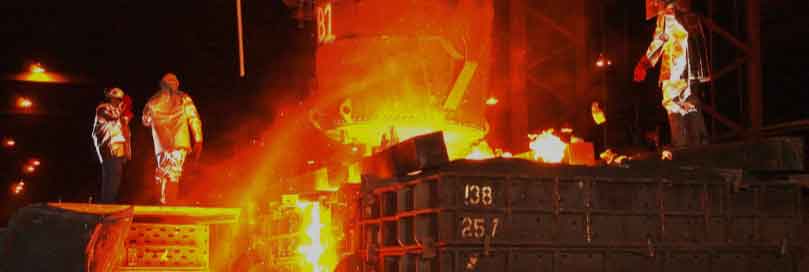
Steel castings offer several sustainable solutions in terms of materials and recycling considerations. Here are some key points to consider:
- Recyclability: Steel is one of the most recyclable materials in the world. Steel castings can be easily melted down and recycled without compromising the material’s properties. The recycling process for steel castings involves melting the scrap steel and reforming it into new castings or other steel products. Recycling steel reduces the need for raw materials extraction and conserves energy.
- Durability: Steel castings are known for their durability and long lifespan. They can withstand harsh operating conditions and have high resistance to wear, corrosion, and impact. This durability reduces the need for frequent replacements, contributing to resource conservation and waste reduction.
- Energy Efficiency: Steel castings are energy-efficient both during production and in service. Steel casting processes, such as electric arc furnace melting, have become more energy-efficient over the years. Additionally, the strength and lightweight nature of steel allow for the design of more energy-efficient products, such as lightweight vehicles that require less fuel consumption.
- Design Optimization: Steel castings can be optimized for efficient use of materials and resources. Through careful design and engineering, the amount of material used in the casting can be minimized without compromising performance or safety. This optimization helps reduce waste, material consumption, and associated environmental impacts.
- Lifecycle Assessment: Conducting a lifecycle assessment (LCA) of steel castings can provide insights into their environmental impact. LCA evaluates the environmental footprint of a product throughout its entire lifecycle, including raw material extraction, manufacturing, use, and end-of-life. By identifying and addressing environmental hotspots, manufacturers can make informed decisions to reduce the overall environmental impact of steel castings.
- Closed-Loop Systems: Steel foundries can implement closed-loop systems to minimize waste and promote sustainability. This includes recycling scrap steel and utilizing sand reclamation systems to recycle and reuse foundry sand. These initiatives reduce waste generation, conserve resources, and minimize the need for landfill space.
- Environmental Certifications: Some steel foundries obtain environmental certifications, such as ISO 14001, to demonstrate their commitment to sustainable practices. These certifications ensure that the foundries comply with environmental regulations and continually improve their environmental performance.
By considering materials selection, recycling practices, energy efficiency, design optimization, and environmental certifications, steel castings can contribute to sustainable manufacturing and help reduce the environmental impact of industries that rely on them.
